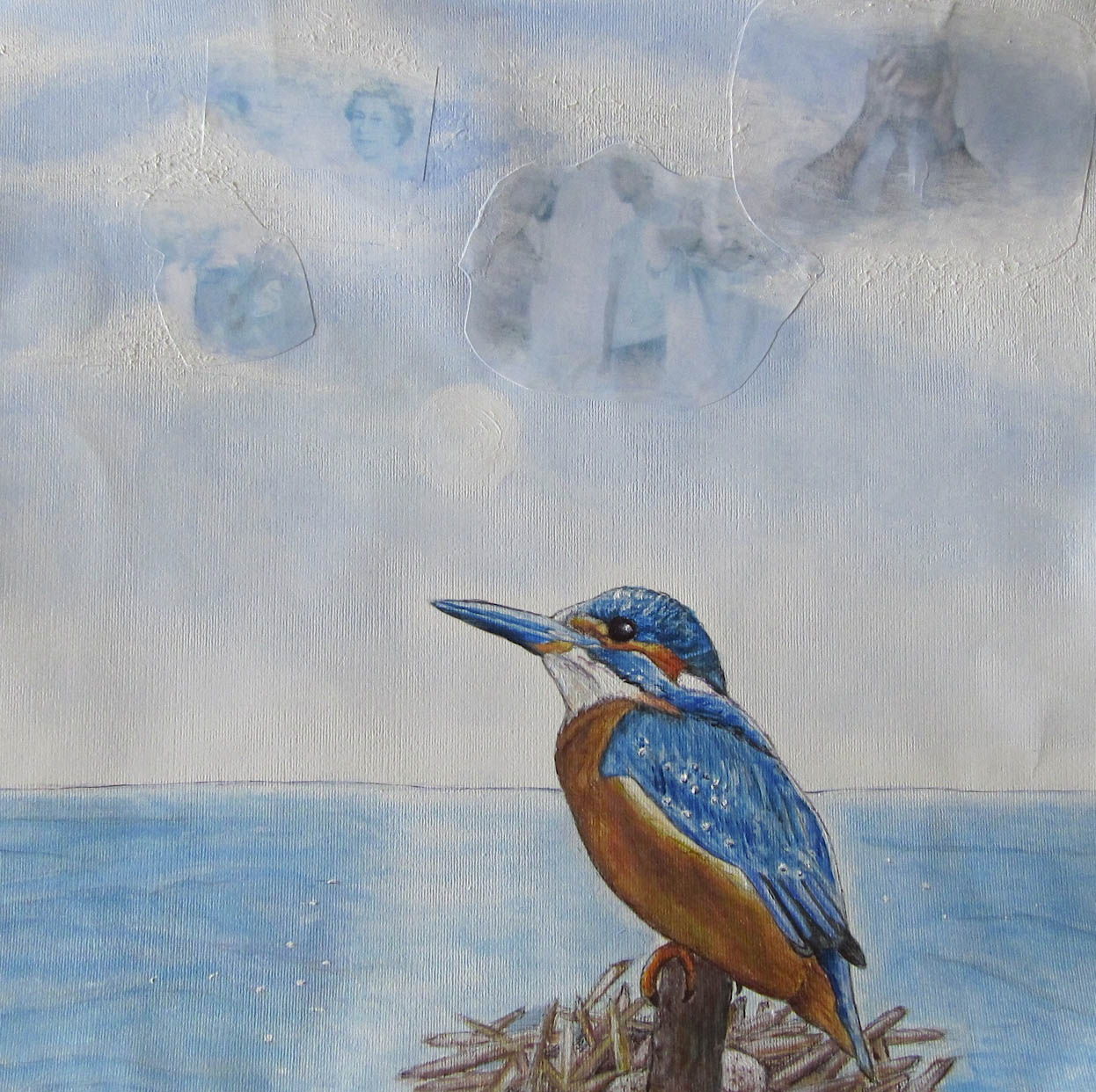My creative piece involved interviewing a member of my family in relation to their experiences of depression, and consequent views surrounding the topic. This enabled me to create a painting intended to portray my immediate reactions to the case, and issues I feel clinicians within the NHS need to more forcibly address. The Halcyon, also referred to as the kingfisher, is a bird of Greek legend, believed to have been empowered by the gods in order to impose a floating nest upon the Aegean Sea, where for fourteen days it magically calmed and stilled the waves. Anti-depressants, sleeping tablets, a pill of any form can relieve an individual’s immediate anxiety and tension, represented by the unsettled state and irregularity of the waves. The kingfisher, analogous to the ‘happy pill’, provided transient control and relief for an individual through its calming action. The bird is striking and vibrant, dominating the painting and demonstrating our fascination and obsession with prescriptions of colourful pills. The short time period over which the bird demonstrates its power reiterates what I feel should be a lack of longevity of the drugs use. Despite its ability to rapidly remove any physical pain depression presents, long-term issues cannot be distorted by chemicals and will remain active within a patient’s life until they are addressed. This is demonstrated by negative images of work, finances, and relationship breakdowns. I’ve incorporated the factors that led to my relative’s depressive state into the background, yet concealed them with clouds. Although we can attempt to obscure aspects of our life that make us miserable, whether through the use of drugs or the clouds within my painting, they will continue to emerge and more vigorously than ever during periods of relapse.
I initially felt apprehensive when presented with the task of a creative piece. However expressing concealed emotions and troubled feelings during the frank conversation with my relative, we reached a sense of understanding, and so a once confusing and traumatic illness became something rational, reasonable and more easily dealt with. Human factors of listening, time and touch often provide the most effective form of treatment, preventing dehumanization of patients and boosting their resilience. The NHS cannot autonomously deal with societies problems other than the reactive measures of sticking plasters. It is an issue of changing culture and an acceptance of well-being as the primary goal. We need to encourage therapeutic activities, education, social engagement and communication before providing a clinical diagnosis. Depression is an illness which requires attention over time. Time for interventions and time for preventative measures.

This is a beautiful piece of work, and I love the symbolism you’ve worked into it. I certainly agree that just as the bird is the most eye-catching part of the painting and dominates in the foreground, so often does the medication aspect of psychiatric treatment. This can prove a danger to holistically assessing a patient’s life in determining how to best help them, and you’ve illustrated this wonderfully with the way you have blurred the background of real life issues. Your choice of the bird as the symbol is particularly inspiring, as the presence of a bird is fleeting and its flight quickly follows, in the same way that medication has such temporary effects.